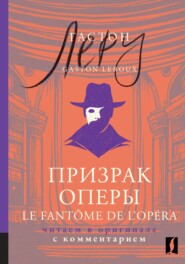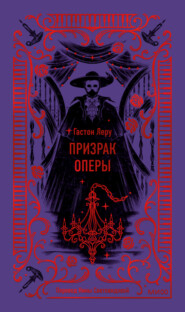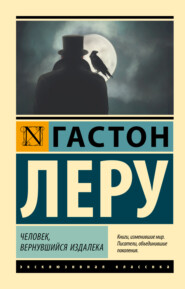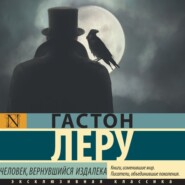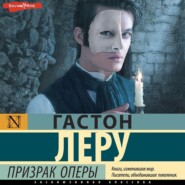По всем вопросам обращайтесь на: info@litportal.ru
(©) 2003-2025.
✖
The Man with the Black Feather
Автор
Год написания книги
2018
Настройки чтения
Размер шрифта
Высота строк
Поля
"You know all papers," said Theophrastus.
"All," said Ambrose with modest pride.
"If one showed you a piece of paper you could tell the age of it?"
"Yes; I have published a monograph on the water-marks of the papers used in France during the seventeenth and eighteenth centuries. The Academy crowned it."
"I know it. And I have the fullest confidence in your knowledge of papers," said Theophrastus with unrelieved gloom.
"It's well-founded; but really it's a very simple matter. The oldest papers presented at first, when they were new, a smooth, glossy surface. But soon wire-marks appeared in them, crossed at regular intervals by perpendicular lines, both reproducing the impression of the metal trellis on which the paste was spread. In the fourteenth century they had the idea of utilising this reproduction by making it a mark of the source or mill which the paper came from. With this object in view, they embroidered in brass wire on the trellis mould, initials, words, and all kinds of emblems: these are the water-marks. Every water-marked sheet of paper carries in itself its birth-certificate; but the difficulty is to decipher it. It requires a little practice: the pot, the eagle, the bell…"
Theophrastus opened his pocket-book and held out his scrap of paper with trembling fingers.
"Could you tell me the exact age of this document?" he said.
Ambrose put on his spectacles and held the paper up to the light.
"There's a date," he said. "172… The last figure is missing. It would be a paper of the eighteenth century then. Given the date within ten years, our task becomes very simple."
"Oh, I saw the date," said Theophrastus quickly. "But is this really an eighteenth-century paper? Isn't the date false? That's what I want to know."
Ambrose pointed to the middle of the scrap.
"Look," he said.
Theophrastus looked; but he saw nothing. Then Ambrose lighted a little lamp and threw its light on the document. In holding the scrap of paper between one's eyes and the lamp one distinguished in the middle of it a kind of crown.
"This paper's extremely rare, Theophrastus!" cried Ambrose in considerable excitement. "This water-mark is almost unknown, for very little of it was manufactured. The water-mark is called 'The Crown of Thorns.' This paper, my dear Theophrastus, is exactly of the year 1721."
"You are sure of it?"
"Absolutely. But how comes it that this document, which is dated 1721, is, in every part of it which is visible, in your handwriting?" cried Ambrose in a tone of amazement.
Theophrastus rose, put the document back into his pocket-book, and went out on stumbling feet, without answering.
I reproduce from the medley of documents of which his memoirs are composed the following passage:
"So now," writes Theophrastus, "I had the proof; I could no longer doubt; I had no longer the right to doubt. This scrap of paper which dated from the beginning of the eighteenth century, from the times of the Regent, this sheet which I had found, or rather had gone to seek in a prison, was truly in my own handwriting. I had written on this sheet, I, Theophrastus Longuet, late manufacturer of rubber stamps, who had only retired the week before, at the age of forty-one years, I had written on this sheet the still incomprehensible words which I read on it, in 1721! Besides, I had not really any need of Signor Petito, or of Ambrose, to assure me of it. All my being cried, 'It's your paper! It's your paper!'"
"So before being Theophrastus Longuet, the son of Jean Longuet, market-gardener at Ferté-sous-Jouarre, I had been in the past someone whom I did not know, but who was re-born in me. Yes: every now and then I 'foamed at the mouth' at remembering that I lived two hundred years ago!
"Who was I? What was then my name? I had a strange certainty that these questions would not remain unanswered for long. Was it not a fact that already things of which in my present existence I was ignorant, were rising from my past? What did certain phrases I had uttered at the Conciergerie mean? Who was Simon the Auvergnat, whose name had risen twice to my burning lips?
"Yes, yes: the name of long ago, my name, would also rise to my awakening brain; and knowing who I was, I should recall the whole of my reviving life in the past, and read the document at a glance."
Theophrastus Longuet might well be troubled in mind. He was a simple, rather dense, self-satisfied soul who had never believed in anything but rubber stamps. A good-natured, strictly honest, narrow-minded and obstinate tradesman, like the bulk of his class in France he had considered religion only fit for women; and without declaring himself an unbeliever, he had been wont to say that when one died one was dead for a long time.
He had just learned in the most convincing, palpable fashion that one was never dead.
It was indeed a blow. But he took it very well. From the moment that he remembered having been alive at the beginning of the eighteenth century, he began to regret that it was not two thousand years earlier.
That is the nature of the French tradesman; he is full of common sense; but when he does exaggerate, he passes all bounds.
In his uncertainty about his previous existence he had two definite facts to start from: the date 1721, and the Conciergerie prison. These enabled him to affirm that in 1721 he had been confined in the Conciergerie as a Prisoner of State: he could not admit for an instant that even in the wicked times of Louis XV he, Theophrastus Longuet, could possibly have been in prison for an offence against the Common Law.
Again the scrap of paper gave grounds for certain inferences. At some desperate conjuncture, possibly on the eve of his execution, he had written it and hidden it in the wall, to find it on a passing visit, two centuries later. There was nothing supernatural about that; it was merely the logical explanation of the facts of the case.
He betook himself once more to the consideration of the document. Two words in it seemed to him, naturally, of paramount importance. They were the words "Betrayal" and "Treasures."
He hoped from these two words to reconstitute his earlier personality. In the first place, it was plain that he had been rich and powerful. Only rich men bury treasures; only powerful men are betrayed. It seemed to him that it must have been a memorable, perhaps historic betrayal, of the betrayal of the First of April.
Whatever else was mysterious about the document, it was quite clear that he had been a great personage and had buried treasures.
"By Jove!" he said to himself. "Provided that no one has touched them, those treasures belong to me! If need were, with this document in my own handwriting I could establish my claim to them."
Theophrastus was not a rich man. He had retired from business with a moderate competence: a cottage in the country, with its little garden, its fountain, and its lawn. It was not much, with Marceline's occasional fits of extravagance. Decidedly the treasures would come in very useful.
At the same time we must give him the credit of being far more interested in the mystery of his personality than in the mystery of the treasures. He decided to postpone his search for them till he could definitely give a name to the personage who had been Theophrastus in 1721. To his mind this discovery, which was of chief interest to him, would be the key to all the rest.
He was somewhat astonished by the sudden disappearance of what he called his "historical instinct." It had been lacking during the earlier part of his life; but it had revealed itself to him in the cellars of the Conciergerie with the suddenness and emphasis of a clap of thunder. For a while the Other (in his mind he called the great personage he had been in the eighteenth century the "Other") had taken possession of him. The Other had been so completely master of him that he had acted with the Other's hands and spoken with his voice. It was the Other who had found the document. It was the Other who had cried, "Zounds! It's Straw Alley!" It was the Other who had called Simon the Auvergnat and then had vanished. Theophrastus did not know what had become of him. He sought in vain. He sounded himself, plumbing the depths of his being. Nothing!
Theophrastus would not stand it. He had not been troubled all his life long by any unhealthy curiosity about the beginning or end of things; he had wasted no time on the mysteries of philosophy. He had shrugged his shoulders at their futility. But since the revelation of the extraordinary fact that a man sold rubber stamps in 1911 after burying treasures in 1721, he swore to go to the end of the business. He would know. He would know everything.
His "historical instinct" seemed to have left him for the time being, he would hunt for it in books. He would assuredly end by finding out who was the mysterious personage who had been shut up in the Conciergerie in 1721 after having been betrayed on the First of April. Which First of April? That remained to discover.
Little as the selling of rubber stamps fits man for historical research, he betook himself to libraries and hunted for that personage. He studied the lives of the chief men of the period. Since he was at it, nothing was too grand for him: Princes, Peers, Statesmen, and Generals, he studied the lives of all. He paused for a while at the great financier Law, but found him too dissipated; the same objection applied to the Comte du Barry; and he was positively horrified by the thought that he might have been the Comte de Charolais, renowned for his debaucheries, whose hobby was to shoot thatchers at work on the house-roofs. For forty-eight hours he was the Cardinal de Polignac before he was disgusted to learn that that great Churchman had not been a man of stainless virtue. Whenever he did find a person whom the historians painted in the most engaging colours and adorned with the most solid virtues, that personage invariably disobliged him by not having been shut up in the Conciergerie or betrayed on the First of April.
However he had just discovered, in the Journal de Barbier, a favourite of the Regent who, strangely enough, was exactly the man he was looking for, when there came a development of his case which plunged him into a profound consternation.
He had sent Marceline down to his country cottage on the banks of the Marne, to which it was their habit to betake themselves at the beginning of July; and Adolphe had gone down to the village inn, to help her get it in order for their stay. Their absence left him freer to prosecute his researches. Then on the morning of the anniversary of his wedding-day he went down to join them at the cottage. He had called it "Azure Waves Villa," in spite of the remonstrances of Adolphe, who had urged that such a name was only suitable to a cottage by the sea. Theophrastus had been firm in the matter because, he declared, he had often been to Treport, and the sea was always green; whereas, fishing for gudgeon in the Marne, he had frequently observed that its waves were blue.
He found his wife and friend awaiting him eagerly on its threshold; and as with the air of a favourite of the Regent, he complimented Marceline on her charming appearance, he gracefully waved his green umbrella, from which he seldom allowed himself to be parted, in the fashion in which he believed the dandies waved their canes at the beginning of the eighteenth century.
He found the household in the stress of the preparations for the anniversary dinner, to which several of his friends in the neighbourhood brought their wives to do honour to Theophrastus and Marceline.
Still the favourite of the Regent, to the astonishment of Marceline and Adolphe, he found a few gracious words of compliment for each guest. Neither of them had ever seen him so shine as host before.
They dined in a tent in the garden; and the talk at once turned on fishing, a sport to which they were all devoted; and they did their best to be accurate about their exploits. M. Lopard had caught a three-pound pike; old Mlle. Taburet complained bitterly that someone had been fishing in her favourite pool; a third declared that the fish were being overfed; and there was a long discussion on ground-bait.
Theophrastus said nothing: he suddenly found these good people too middle-class for him. He would have liked to raise the level of the conversation; and he would have preferred it to deal with the matters which filled his fevered imagination.
Towards the end of dinner he found a way to set Adolphe talking of ghosts. Then Madame Lopard told them of the extraordinary doings of a somnambulist who lived near; and at once Adolphe explained the phenomena of somnambulism according to the Spiritualistic theory, and quoted Allan Kardec. Adolphe was never at a loss to explain "phenomena." Then, at last, they came to the matter to which Theophrastus was burning to bring them, the Transmigration of Souls.
Marceline observed that our reason rejected the hypothesis; and Adolphe protested vigorously: "Nothing is lost in nature," he said authoritatively. "Everything is transformed, souls and bodies alike. The transmigration of souls with a view to their purification is a belief which goes back to the remotest antiquity; and the philosophers of all ages have been careful not to deny it."
"But if one came back into a body, one would know it," said Marceline.
"Not always, only sometimes," said Adolphe confidently.






